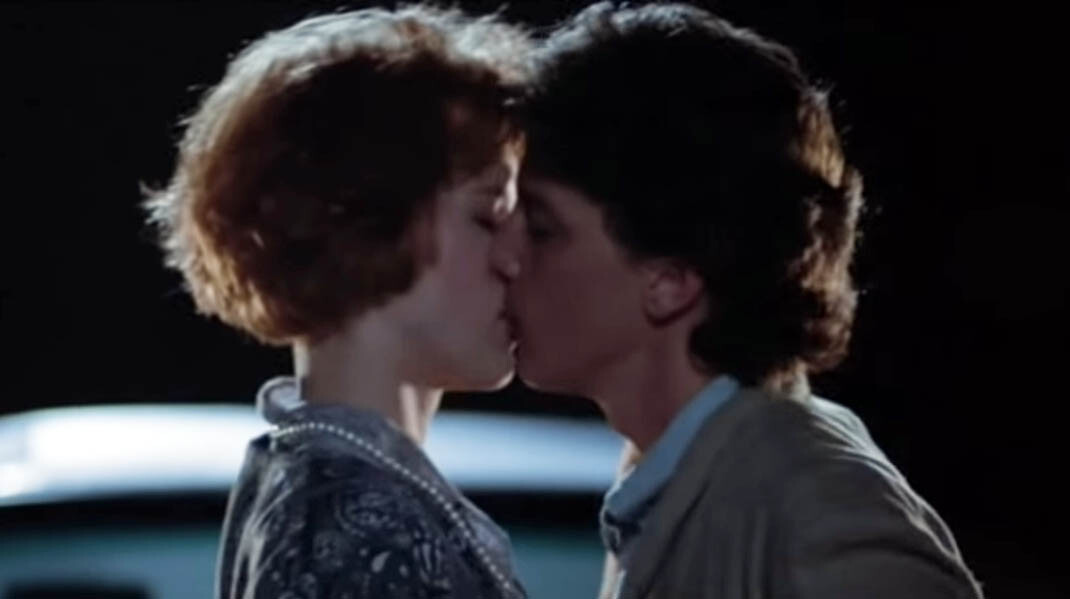Things John Hughes Wouldn’t Get About ‘Do Revenge’

(Spoiler alert: Plot details from Do Revenge discussed below.)
All teen comedies owe a debt to John Hughes, the writer/director/wunderkind/weirdo behind genre classics like Breakfast Club, Sixteen Candles, and Ferris Bueller’s Day Off. But as Ferris himself noted, life moves pretty fast -- just because John established the blueprint doesn’t mean that the game can’t be taken to another level. After all, as we’ve documented here at Cracked, Hughes movies were occasionally … problematic.
Don't Miss
What would Hughes make of Do Revenge, the new teen comedy currently burning up the Netflix Top Ten? The plot sounds like it was spit straight out of the Hughes Teen Comedy Plot Machine: A dethroned queen bee at a posh high school strikes a secret deal with an unassuming new student to exact revenge on each others’ enemies.
But we’re guessing there would be a few story wrinkles that would throw Hughes for a loop. For example:
LGBTQ characters aren’t punchlines.
In Sixteen Candles, Sam (Molly Ringwald) brushes off the Geek (Anthony Michael Hall) by calling him a “total <f-slur>.” When Breakfast Club’s Bender (Judd Nelson) teases Andy (Emilio Estevez) about his precious wrestling meets, Andy fires back with “You wouldn’t know anything about it, <f-slur>.” Ringwald is pretty convinced that Duckie (Jon Cryer) from Pretty in Pink is gay, but Hughes feels obligated to give him a hot blonde consolation prize at the movie’s end lest we think otherwise.

Paramount Pictures
One of Do Revenge’s two main characters, Eleanor (Maya Hawke), is gay, and … she just is. That’s it! Her sexuality isn’t a plot point as it surely would have been in a Hughes movie. (Given that his films were set in the 1980s, maybe it would have had to be.) Other LGBTQ characters populate the movie without comment or innuendo. It’s a long way from Hughes throwing around gay slander as his most hurtful insults.
Sex is part of life, not some offscreen prize.
Boy, was sex weird in John Hughes movies. It could be an illicit reward, as the one (presumably) granted to the Geek in Sixteen Candles; it could be a point of shame, as it was for Breakfast Club’s Brian; it could even be assumed that Ferris and Sloane (Mia Sara) had a fulfilling (but strictly offscreen) sex life. Everyone wanted it, but we could only assume some got it.
The teens in Do Revenge, on the other hand, have sex and the filmmakers don’t feel the need to play coy. The fact that sex is sometimes recorded (and used as a major plot point) just underscores the realities of teen sexuality in the 2020s. Common Sense Media knows the drill: “Parents need to know that Do Revenge represents high schoolers as vengeful, anxious, sexually active, identity-conscious casual drinkers.”
In other words, high schoolers.
Poor kids can win (without falling for the rich kid).
Hughes purportedly hated the rich kids when he was in high school, but you wouldn’t know it from his movies. Clearly affluent Ferris whines about wanting a car for his birthday but only getting a computer. Pretty in Pink features a girl from the poor side of town, but she dumps her best friend for the good-looking rich guy. In Hughes movies, the wealthy kids win.

Paramount Pictures
Do Revenge’s Drea, like Pretty in Pink’s Andie, is from the wrong side of the tracks. She definitely aspires to the finer things and isn’t going to let her financial status stand in the way of getting what she wants. But in the end, she pulls an anti-Andie, rejecting wealth and status (in the form of a spot at Yale) for friendship.
Poor Duckie needed more friends like Drea. We wish Hughes was here to get the message.
For ComedyNerd exclusive content and more, subscribe to our fancy newsletter:
Top image: Netflix
